Sonia, Gramophone And The Musical King Of Old Kyiv
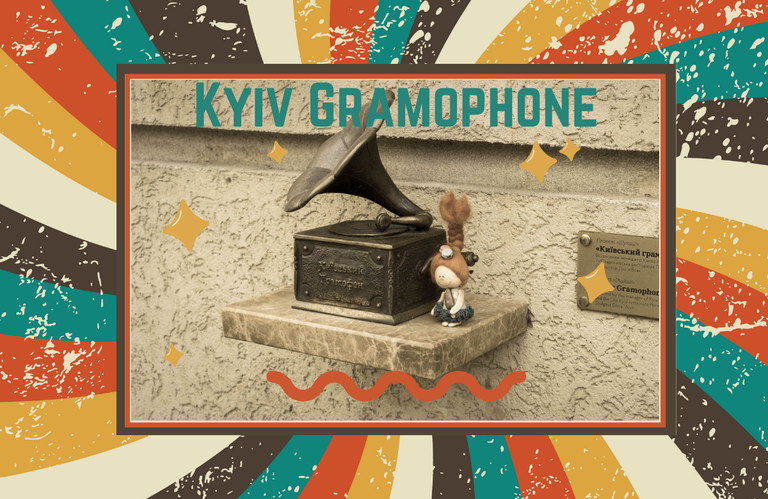
Hello, dear readers!
Sonia has a special and magical story for you today. Her finding seemed just a pretty thing on the wall of a Kyiv restaurant at first sight. But what a story is behind it! And a secret! She can't wait to share it with you.💖 By the way, have any of you heard the sound of a gramophone live?
This is another post from the "Sonia and Kyiv mini-sculptures" series about "SHUKAI!" project founded by Yulia Bevzenko, a big lover of Kyiv. The project's idea is to tell the history of Kyiv via bronze mini-sculptures. You search them, scan the QR code, read the story and have fun!.
Kyiv Gramophone
So what connects the capital of Ukraine and a granphone? And here comes the story of Jindřich Jindříšek, the most famous Czech of the Russian Empire. And how he won Kyiv. BTW, I am happy that wrote it and don't need to say coz I don't think I could ever pronounce his name, LOL.
The events took place at the time when Kyiv and the lands of Ukraine were under the Russian Empire. Jindrzych Jindrzysek was born in 1857 in the north of the Czech, which at that time was under the Austrian Empire. His hometown is located at the highest elevation of 451 meters in the Western Sudetes, and he was always proud of being born in the mountains and took the nickname "Highlander".
Wise Advice
Jindrzysek didn't like the Habsburg rule, so he went on a journey in search of his business. He was poor, so he traveled on foot. Ukrainian and Moldovan peasants gave the wanderer free lodging and food. Having reached Hungary, Jindřich learned a lesson that had a significant impact on his future life. The owner of the manor, to whom Jindrzysek turned, replied that a healthy person, if he is hungry, should ask for work, but not for bread. Jindrich worked out his overnight stay and dinner, and remembered this advice for the rest of his life.
Music Business
After reaching Kyiv, Yindrzysek started trading. At first, he sold accordions and strings, then he opened the first musical instrument store in Kyiv. Things went smoothly, and soon he opened a repair shop, then a factory that made musical instruments. He acquired his own printing house to sell sheet music. Finally, a store with the famous name "Depot of Musical Instruments" appeared on Khreshchatyk, the Kyiv main street.
In 1903, Yindrzysek began to sell a new product for Kyiv - gramophones and gramophone records. They became extremely popular because one needed to learn to play a musical instrument, while the gramophone could be simply turned on.
Later, Jindrzysek expanded the trade, and the "Depot of musical instruments" moved to another building on Khreschatyk, where buyers could see two hundred different pianos and grand pianos. In addition, they sold string and bow instruments, wind instruments, balalaikas, accordions, and the selection of sheet music was incredibly rich. You could even buy a Velger-Mignon device from them, which played music from special sheet music reels.
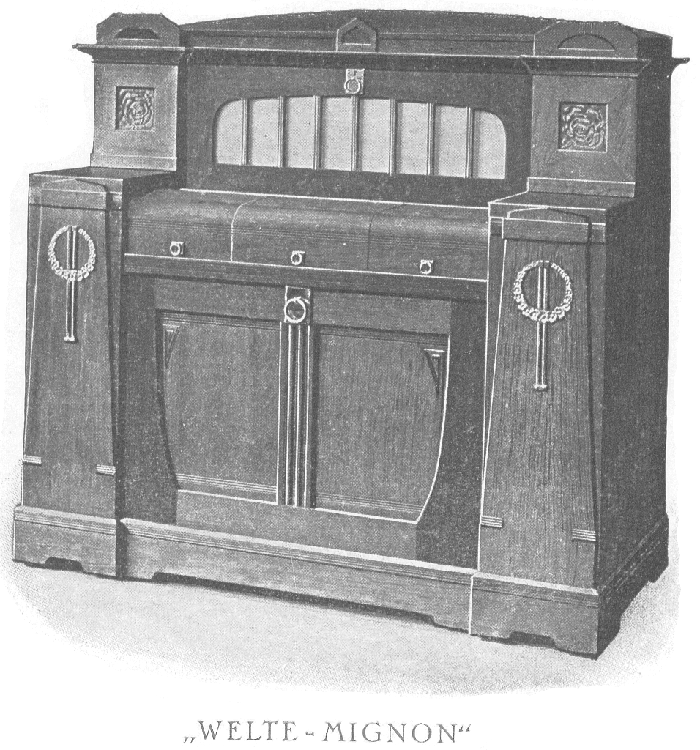

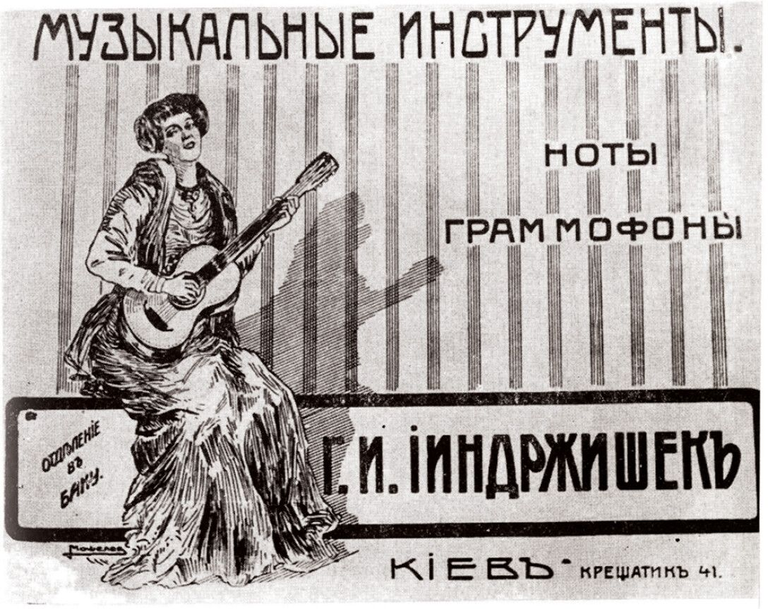
Jindrzysek sought to create a full cycle of sound recording in Kyiv. So he, together with a new companion from Berlin, Ernst Hesse, opened a recording studio of the German company "International Extra-Record". The best composer of old Kyiv, Mykola Lysenko, the author of the world-famous "Carols of the Bells", recorded there.
Next, Jindrzysek built a musical record factory. But after the first edition of the records, the factory burned down. After calculating the losses, the companion from Berlin left Kyiv, so Jindrzysek had to rebuild the plant himself. But maybe it was for the best because, with the beginning of the First World War, German and Austrian products lost their popularity here. The competition in the Kyiv gramophone market was very high, but eventually the Kyiv record factory left the competition behind.
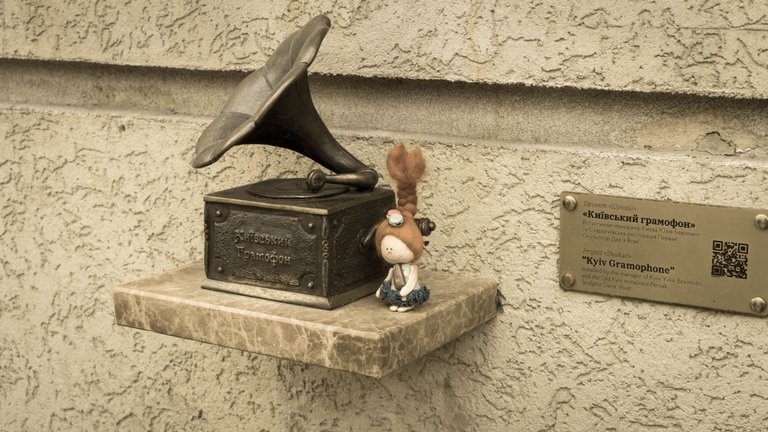
But the war changed everything around. A prisoner of war camp was located not far from the plant in Kyiv. Jindrzysek did everything to get as many Czechs out of the camp as possible, where famine and epidemics prevailed.
The arrival of the Bolsheviks in the city became an even greater threat. At first, they looted musical instruments from the stores. And then the arrests began. Everything that Jindrzysek built in Kyiv was lost. The Czech school closed, the factory was closed too and stood empty, the park which was once the center of Czech life, was cut down for firewood.
On the other hand, the revolution in Austria-Hungary gave hope for the revival of his homeland, so Jindrzysek decided to return to Czechia.
Kyieve mii!
This is almost the end. But I mentioned that the Kyiv gramophone has a secret.
The motto of the mini-sculpture says: "Switch me on and you will hear Kyiv anthem". Every Ukrainian would tell you that Kyiv anthem is the song "Kyieve mii".
Let's do it!
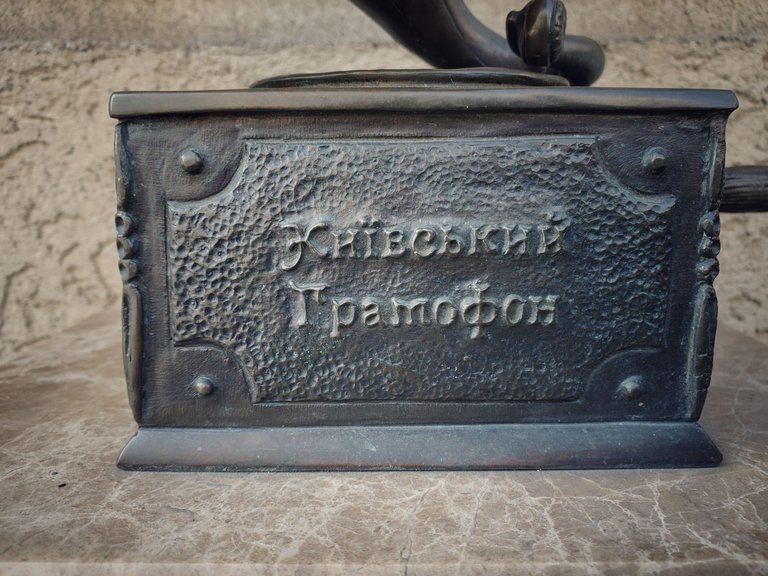
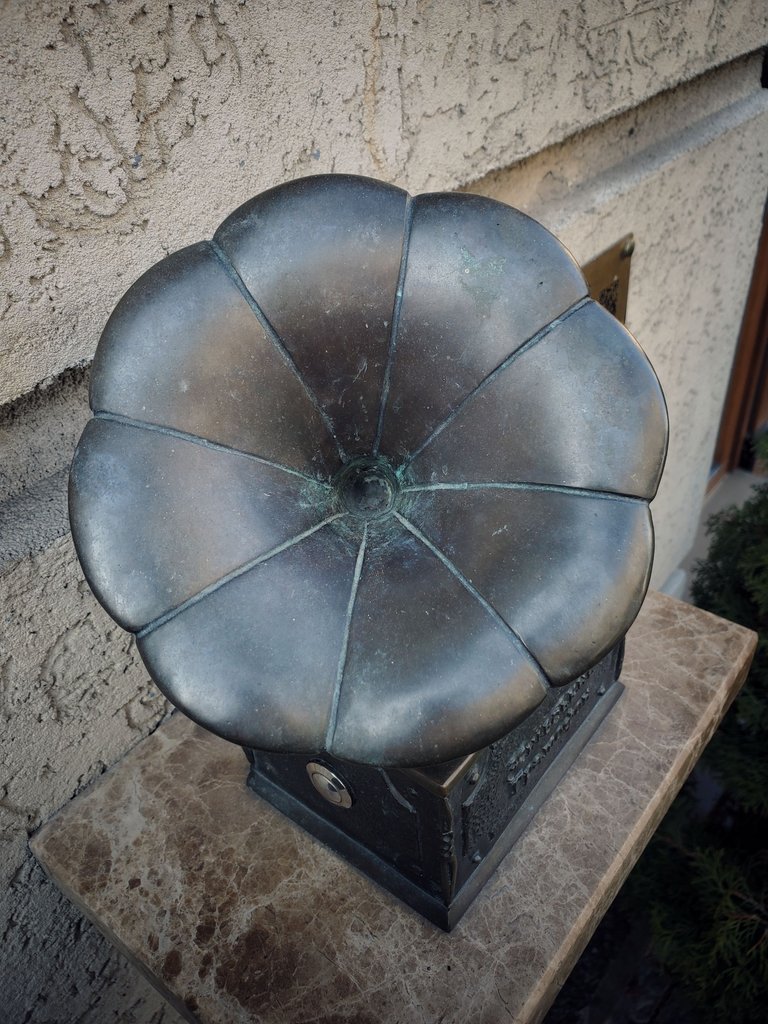
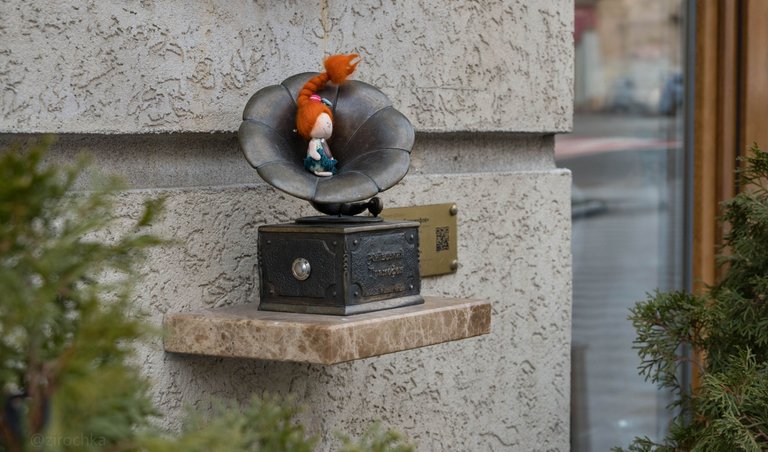
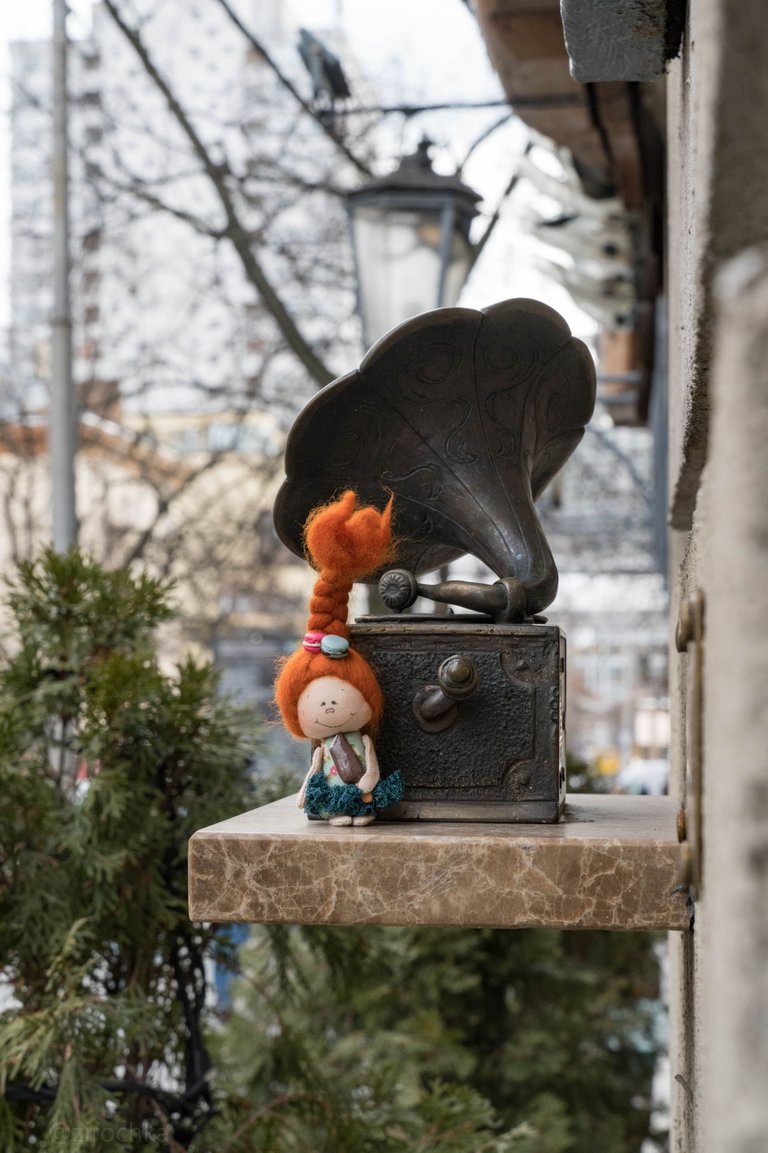
!BEER
View or trade
BEER.Hey @zirochka, here is a little bit of
BEERfrom @pixresteemer for you. Enjoy it!We love your support by voting @detlev.witness on HIVE .
I appreciate the history of the Gramaphone, @zirochka !
!BBH
@zirochka! Your Content Is Awesome so I just sent 1 $BBH (Bitcoin Backed Hive) to your account on behalf of @silversaver888. (13/20)
Thank you, @silversaver888 🤗
Congratulations, your post has been added to Pinmapple! 🎉🥳🍍
Did you know you have your own profile map?
And every post has their own map too!
Want to have your post on the map too?
Дуже цікаво! А ти, зірочка Київа, граєшь на якомусь інструменті?)))
В дитинстві добре грала на скрипці і трохи на фортепіано, і навіть трохи на гітарі )) Зараз на нервах ще навчилась грати )))))
На нервах - це найкрутіше!))) А я мріяла навчитись хоч на чомусь, та мачусі було не до мене!)))
Минулого не зміниш, на жаль. Але кжуть вчитись ніколи не пізно 😉
От насмішила, дівчинко!))) У 72 роки?!))) Та хіба що "на нервах"?!)))